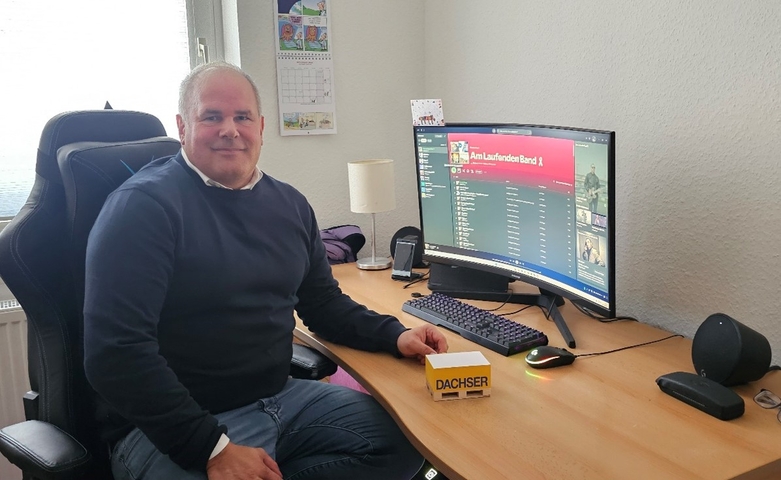If the Logistics Training Center (LTC) wouldn’t already exist, it would have to be invented. Since its founding in 2010, thousands of candidates have completed vocational training courses, educational events or programs to become dangerous goods safety advisors, customs experts, environmental managers, aviation or cyber security specialists. Thanks to LTC courses and seminars, the logistics industry in and around Frankfurt, which suffers from a shortage of personnel, has gained access to a broad, additional labor pool.
“Our training courses cover an estimated 50% to 60% of skilled workers required by the logistics industry in the Rhine-Main area, i.e., freight forwarders, airlines, and ground handling agents,” states LTC executive, Max Wasser. And just as importantly, “80% of our participants are taken on as permanent employees by the training company after successfully completing their final exams.” This is because two-year programs such as retraining as a freight forwarding and logistics expert, are split into a theoretical and practical part, with the latter module being carried out in cooperation with an external company, preferably the freight forwarders Dachser or Rhenus, as practice has shown.
These 24-month courses are paid for by the Federal Employment Agency, which also covers the candidate’s pension insurance for the duration of the training. Ultimately, this is more successful and probably even cheaper for taxpayers than paying unemployment benefits to people who have lost their jobs for whatever reason. Thanks to this duality of theory and practice, LTC’s courses are very strongly oriented towards real working life. For instance, those who have successfully completed the training are familiar with the dangerous goods classifications in air freight, basic customs regulations, and warehouse logistics. This makes graduates attractive to logistics companies, as demonstrated by the fact that four Polish course participants are now employed by DHL after completing a course on air freight. Or freight forwarder Dachser, which hired course participant, Nils Karry (NK), right after he completed his professional training.

CFG: Nils, how come you were hired by Dachser?
NK: I was one of 15 attendees on a course in which participants from various professions were trained as freight forwarding and logistics services specialists. Part of the program took place at Dachser’s facility, so both sides already knew each other a little. On my wedding day, Dachser called and told me they wanted to hire me for good.
CFG: It sure was a double reason to celebrate. But looking back, what were the requirements to being considered for this type of training at LTC?
NK: In my case, the employment agency that financed the course required me to have three years of professional experience, which I was able to prove because I had worked for three years straight at a call center for the FAZ daily newspaper in Frankfurt after dropping out of university. However, the FAZ closed the call center, and I was left with no professional qualifications and practically nothing. I then contacted the Employment Agency and together we developed a program to qualify me professionally. To do this, I had to pass several tests and, after an interview between myself and a psychologist, the agency prepared a report on whether I would meet the requirements for the training program. The answer was yes, and I applied to LTC. I have to say that, at that point, I had no specific knowledge of road feeder services, air freight, customs declarations, or sea freight. But I dug into the task since I was motivated to learn something new. At the end, it all worked out well.
CFG: Wasn’t it difficult for you to go back to school again after you were no longer a teenager?
NK: It wasn’t really a big challenge, perhaps because I had attended university but left before graduating due to a parallel professional commitment. In that respect, I was familiar with structured learning. It was certainly more difficult for other course members with limited German language skills. I would like to emphasize that the course was not only very well organized, but the lecturers employed by LTC were highly qualified and responded to each individual course participant on a very personal level. This was not so easy, because overall it was a very diverse group. It included an army veteran who had fought in Afghanistan and a former professional soccer player who wanted to retrain. The four women from Poland mentioned earlier were also part of the group, as were two female migrants from Brazil. In the end, only two of the 15 participants in my course failed the final exam, which was held at the International Chamber of Commerce in Frankfurt.
CFG: So, was the LTC course a turning point in your professional life?
NK: Yes, and not only there, but also in my private life, as my wife and I decided to start a family after Dachser offered me a fascinating job.




